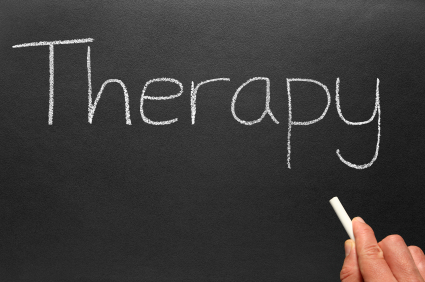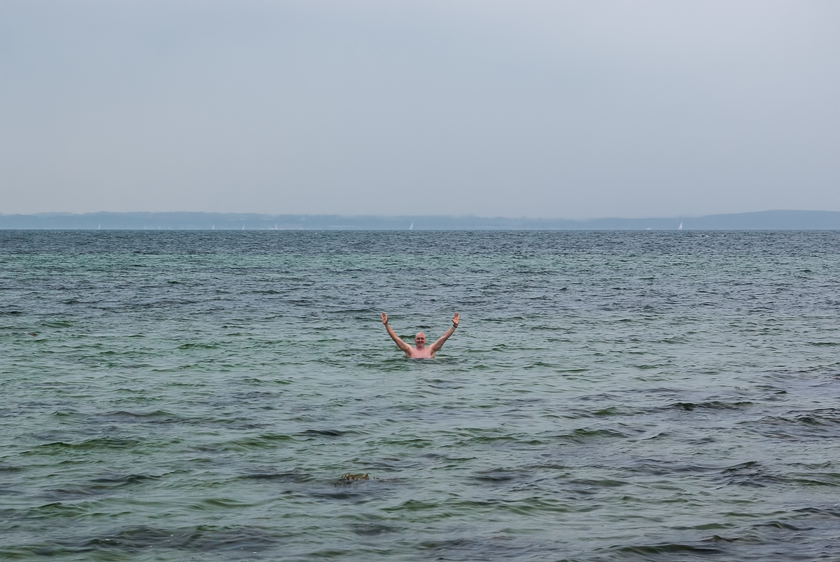As I laid in bed thinking about the next day, about my turn, fear flooded my entire body. I was like a pressure cooker with no relief valve, and I knew I had to do something fast. I dressed quickly and left my room, walking outside into the cold Arizona night.
The black sky was speckled with a million shining stars lighting up the desert floor, casting shadows on giant, prickly cactuses. I walked quickly along the side of the road, exhaling fear with every breath. I began to feel better, more grounded and intent on making it into town.
Every few minutes I would squint as a car’s oncoming headlights blinded me, but I never missed a step. After some time, I felt a sharp pain in my side. Then my left calf began to tense up and I wondered how far I had walked.
I wondered even more about how far I had left to go, whether walking alone in the middle of the night on a dark road was such a good idea, and whether I would survive confronting my fears in an experiential therapy group the next morning.
Emotionally focused therapy
My week-long experience in Tucson was only one of a number of therapeutic journeys I have taken during the past two decades.  At the time I took my long walk in the Tucson desert I understood very little about how professional therapy ultimately translates into a better life. I was there because that is what I thought I was supposed to do to get better.
At the time I took my long walk in the Tucson desert I understood very little about how professional therapy ultimately translates into a better life. I was there because that is what I thought I was supposed to do to get better.
It was a challenging experience, like many of the therapeutic journeys I have been on, because the essence of the therapeutic work was emotional. Since I had lived much of my life in my head, learning to connect with my body and feelings was not natural, particularly when I felt I had so little control over these things.
Although I can honestly say it was not the most enjoyable week, after it was over I felt more complete, more integrated, more able to be in the world in a broader context. Some of the emotional pressure had been released safely, and I felt more alive.

Such outcomes have always been the reason I keep going back for more, even to this day.
Advancing developmental capacities
What I now realize after years of personal therapeutic work, counseling patients, and studying the research on treatment outcomes, is that good therapy advances developmental capacities that make healthy relationships possible.
In addition, by expanding developmental skills, it becomes possible to optimize overall mental and emotional functioning, leading to an expansion of life opportunities, a better alignment between innate talents and employment, and a more meaningful life.
What I have also realized is that advancing developmental capacities does not necessarily require professional treatment, but can result from a number of life experiences. Although medications and various cognitive-behavioral therapies so often used in addiction treatment play an important role in solving the problem of addiction, they fall short of a permanent solution because they are not intended to progress emotional development.
Healthy relationships
When I reflect back on the many therapists I have worked with, self-help groups I have attended, experiential programs I have endured, and the wide range of therapeutic approaches I have subjected myself to, it is clear now that the most important ingredient in all of them was people, not specific therapies, medications, or programs. Treatment works best when in the context of relationships, the skills necessary to initiate, develop, and maintain healthy relationships – skills underdeveloped because of time spent with objects – are nurtured.
The good news is that anyone, at any stage of life, no matter how badly addicted to objects, can evolve their developmental capacities and engage in life in a deeper and more meaningful way.
Great blog señor,
I lived for a year in el paso and my walks through the desert were very moving, to walk in the baking heat admist a land so brown and decayed, it was an interestig setting for my contemplative mind at the time. I like your metaphor of venting the emotional steam engine that is our body-psyche. Sometimes we let a vent get backed up for fear of what will come out but in the process we start to mess up the whole system.
I’ve been mulling over the importance of addressing developmental defecits and so forth in my own life and with my future clients. They’re like black holes in the psyche and if we don’t nurture these mental absesses they are likely to become centers where all the negative emotions, cognitions and experiences in ones psyche-body can gather and fester. People are where it’s at and encouraging the development of our capacities to connect and work with others allows our life path to take on a richer level of being: mind, body and soul.
Thanks Luis! Very well said.
J
I too spent think there is something profound about taking long walks on the red earth of the American Southwest. Something about the desert silence that still teems with life can help you tap into awareness that is less accessible amidst the usual city noise. And I appreciate the metaphor because digging deep in therapy often requires a walk on the seemingly fetid earth of our unchecked wounds to find the desert flowers beneath.
at the end of the post, you say:
Treatment works best when in the context of relationships, the skills necessary to initiate, develop, and maintain healthy relationships – skills underdeveloped because of time spent with objects – are nurtured.
And I find myself ruminating on how much we talk about relationship as the key change agent and yet how complex relationships and relationship building are particularly with mandated or resistant clients or those whose safety has been compromised by the process. I’m diving into all of these books about therapeutic relationship right now and mulling over how to foresee or at least attend to the unforeseeable and the unspoken and how to really work on relationship rather than falling back into the “safety” of theory or experience. I’m curious if the journey you discuss here and elsewhere has given you any insight you’d like to share about that process?
Great article. Long walks are therapeutic.
I am originally from Portland Oregon and I have lived in Lake Havasu Arizona for the past 10 years since I was 19. I am not a fan of the heat or walking in the desert I find the desert depressing because it’s so hot and ugly, the brown mountains are not beautiful to me. Walking down the streets in Oregon or on the coast is what soothes me, I love the green and the smell of the grass, and the feel of the sand on my toes. As for my dad when he comes out to Arizona to visit me from Oregon he thinks it’s beautiful out here. Granted I am not depressed living out here but it’s ugly. When we go to California or Oregon and walk on the beach I feel like all pain, responsibilities, and everything vanish as I walk along the coast line I feel like I am walking on air, and don’t have a care in the world. The story here is inspiring but lead me more towards the ocean than a walk in the desert so I wanted to express the way I felt.